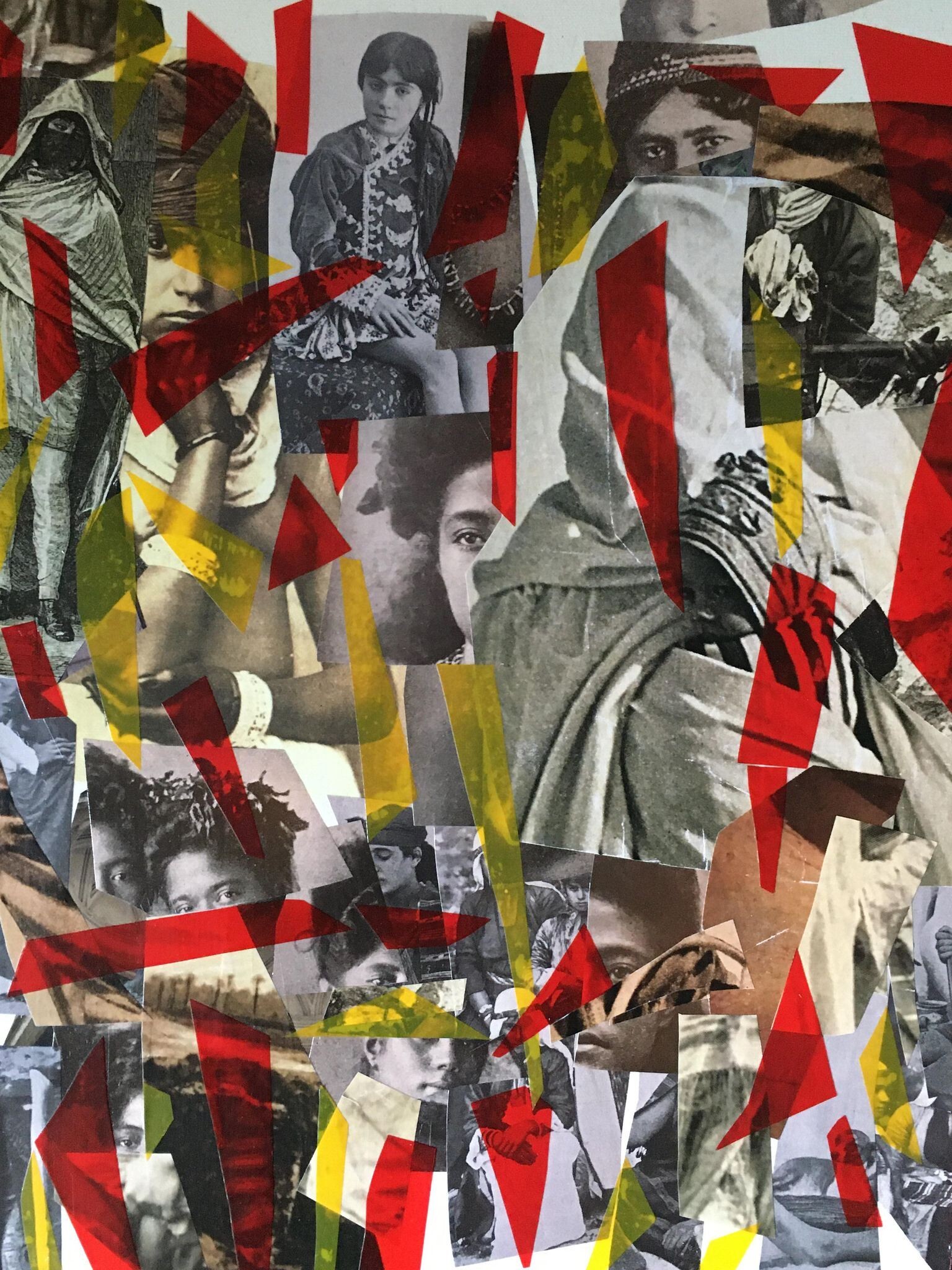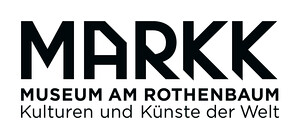Archaeology of the colonized body
April 28–July 28, 2021
Rothenbaumchaussee 64
20148 Hamburg
Germany
Amina Zoubir’s work focuses on the representation and appropriation of the female body in colonially and ethnographically influenced photographs from North Africa. The MARKK’s photo collection contains many of these photographs, which are a challenging collection for the museum as well. As historical objects and testimonies, the museum stores and preserves them. However, their origin coincides with a time of colonial and scientifically European-dominated power structures and imbalances, which are directly visible in the photographic representations of people and the images they create. By non-critical reproduction, exhibition and viewing, there is still a danger today of both solidifying these images as well as a continued, violent objectification of the people depicted.
In contrast, the strength of Amina Zoubir’s work lies precisely in the fact that, through a deliberate deconstruction and refocusing of these difficult portraits and the images they convey, the people depicted are placed at eye level as subjects, in a break with their historical context of origin, thus made and kept visible in a new way. The serial, collage-like reproduction highlights the extremely high number of women affected by this colonial appropriation of their bodies.
Curatorial statement written by Jana Caroline Reimer, curator, North Africa, West and Central Asia and Ancient Egypt, MARKK Museum am Rothenbaum.
Archaeology of the colonized body was the first solo exhibition of artist Amina Zoubir at MARKK Museum in Hamburg, Germany. The presentation of her research and collages-artworks started with an artist talk held at the Zwischenraum MARKK Museum with Amina Zoubir (visual artist and videomaker), Jana Caroline Reimer (curator for Northern Africa, West and Central Asia at the MARKK), Stephan Köhler (Kulturforum Süd-Nord) and Skadi Sarnoch (Zwischenraum/ MARKK in motion) which focused on her practice of the serial collages-artworks shown at Archaeology of the colonized body and the question of photographic representation of the body during the Colonial period, especially in North Africa. Amina Zoubir also talked about her residency with Kulturforum Süd-Nord, when she conducted her research on the ethnographic photographic collection at MARKK Museum.
Amina Zoubir’s collages-artworks presented at Markk Museum were created as part of the second chapter of artist residency “Reversed Exploration,” to which she was invited by the Kulturforum Süd-Nord e.V. in spring 2021 and introduced to the MARKK Museum. Her residency was supported by M.Bassy, the Behörde für Kultur und Medien and the Liebelt Foundation.
Acknowledgments
Stephan Köhler, Chairman Kulturforum Süd-Nord, Catharina Winzer, Head of Photographic Archive MARKK Museum, Björn Lux, Founder of M.Bassy, Marleen-Christine Linke, coordination at M.Bassy, and all the Museum’s team and partners especially Skadi Sarnoch and Miriam Hellerich.
Amina Zoubir is an Algerian visual artist and videomaker working on the notion of body language in specific and public spaces to question and analyse social and historical thoughts in North Africa. Through her poetic artistry to view the human/animal/object body, she pushes us to reflect on the established rules of our contemporary society. Amina Zoubir’s work has been exhibited in biennials, Lahore Biennale (2020), Venice Biennale at the first Algerian Pavilion (2019), Cairo Biennale (2019), Dakar Biennale (2018), Lagos Biennale (2017), Lagos Photo Festival (2017), Casablanca Biennale (2016), Addis FotoFest (2014), Biennale BY14 Yakutsk Russia (2014), Pontevedra Biennale (2008) and shown in group exhibitions at museums, MAXXI Museum Rome Italy, MUSAC Leon Spain, CAAM Las Palmas in Canaries Islands, Torrance Art Museum, California. She was grantholder in artist residency at Konstnärsnämnden iaspis, The International Artists Studio Program in Stockholm (2020, Sweden), the Bag Factory in Johannesburg (2019, South Africa), Cité Internationale des arts in Paris (2014, France), Cinémathèque Tangiers (2013, Morocco), Videochroniques Aflam in Marseille (2010, France), Fondation Michelangelo Pistoletto in Bari (2008, Italy). Her artworks have been included in public and private collections at Markk Museum (Hamburg, Germany), Etnografiska Museet (Stockholm, Sweden), Fondation Donwahi (Abidjan, Ivory Coast), FRAC Occitanie Fond Régional D’Art Contemporain, Les Abattoirs (Toulouse, France), African Artists for Development (Paris, France).



